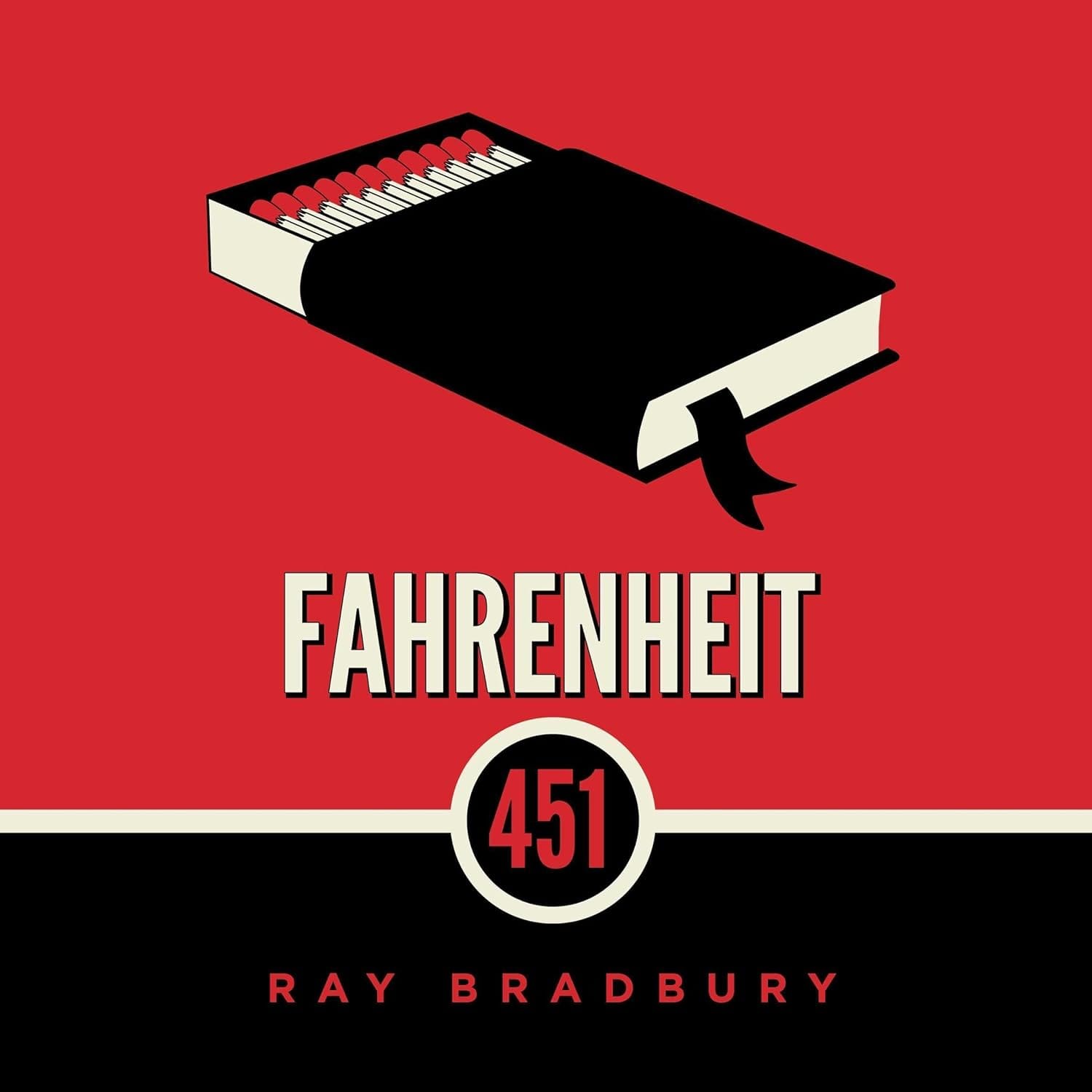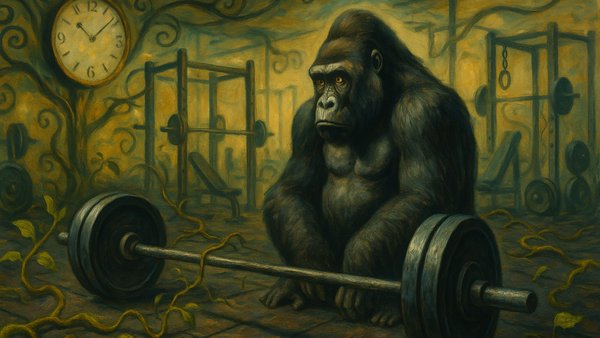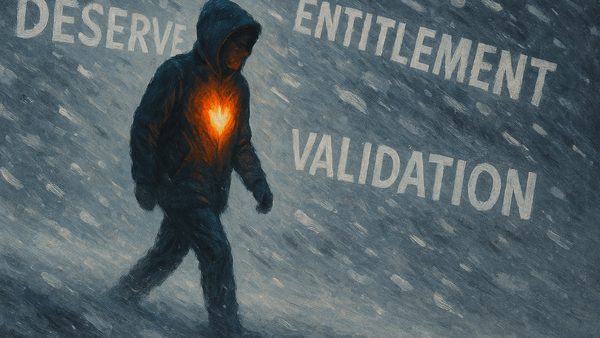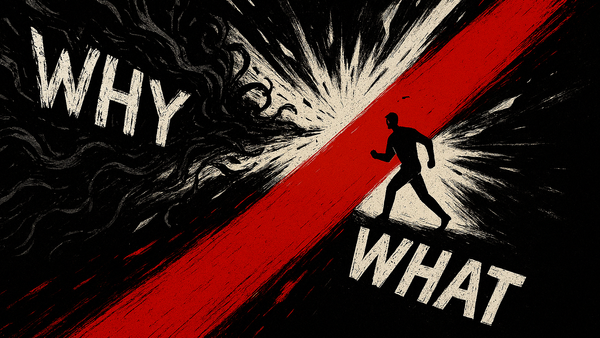The Purpose of Survival
Discover what we lost when we stopped merely surviving—and how to make work sacred again in an age of screens and drifting souls. This week’s issue is about lofty goals, dystopian fantasies, and racism.

Modern man no longer hunts. He commutes. He doesn’t forage, he fills spreadsheets. He doesn’t gather wood, he gathers email threads. He doesn’t dig for roots, he digs for relevance in digital echo chambers and systems.
The vast majority don’t build shelter, don’t plough fields, don’t cook, and don’t even mate within a direct, uninterrupted feedback loop. Once, such work had a clear purpose: survival.
Survival is still the reason we work—it pays for food, rent, and medicine. But the direct link between labor and life has been abstracted beyond recognition. The immediate feedback loop is broken.
In our age of office labor, we hunt money with keyboards, forge bonds through compliance protocols, and build hierarchies through performance reviews. We’ve become utterly estranged from survival’s essence. Alongside the loss of self-sufficiency and direct experience of nature’s demands, we abandon religion, festivities, and tradition—anything that once grounded life in a comprehensible concept of our thoughts and the world, a story larger than ourselves.
No more scorching sun, just fluorescent lighting.
No more ritual, just recurring meetings.
We’ve outsourced the visceral to machines and meaning to metrics. We survive, yes. But only technically.
And so the soul revolts. It flees across continents, seeking refuge in new-age spirituality, psychedelics, and ceremonies borrowed from cultures it barely understands. To cope with the detachment, it embraces ayahuasca retreats, primal scream therapy, barefoot walks, spirit summoning, kambo, rapé, and a liberal sexual ethic that dissolves the very boundaries needed to hold identity together. This isn’t mysticism—it’s desperation.
The disconnection births a hunger for contact with something new, raw, and unmediated—masked as a search for belonging and a taste of reality. And so, a strange bouquet of rituals from fragmented traditions is offered as sacred remedy, especially to those fixated on the expectation that it must contain the secret ingredient to finally find meaning. What seems eccentric is epidemic. So widespread, in fact, it has become an industry.
Our bodies are trying to remember what our lives demand we forget: that survival was once sacred.
This search has become a toxic prescription. Instead of reorienting the troubled mind, it often drowns it in a shoreless sea of symbolic noise. The seeker doesn’t crave drugs or hallucinations, but contact with life and death. Yet drugs are what he finds in his vulnerable and disoriented condition.
Drinking strange brews in stranger jungles cannot restore peace, just as snapping a few selfies in a Spanish cathedral won’t mend the aching soul of a Japanese millennial. Both are symptoms, not solutions. They do not resolve the emptiness—they reinforce it and act it out.
Try to be useful. Do things that are useful to your fellow human beings, to the world. It’s very hard to be useful. Very hard.
—Elon Musk
In an age of phantom work, virtual labor, and status through social metrics, these words are gospel. We simulate productivity. But produce nothing real. We tick boxes, click buttons, juggle calendar invites, post dopamine-drip visuals, and talk to machines—trying to matter. Trying to matter has become modern man’s new form of hunting—and modern woman’s new form of childbearing.
But unlike the ancient hunt, there is no feast. Only burnout. And burnout doesn’t just come from doing too much—it comes from doing too much of what doesn’t matter.
Yes, you can make money with mobile games, pornography, or clickbait content. But are you creating value? Or just harvesting attention in a market gone numb?
We’ve stripped survival of its visceral poetry and we can’t go back in time. But we can transmute and resurrect it in new domains.
If you no longer build shelters, build ideas. If you no longer hunt animals, hunt truth. Seek work that forms a tangible connection to your life—work that translates as directly as possible into something you can taste, hold, or believe in. Create what matters. What feeds you and others. Not what drains them.
Protect your soul from endless wandering. The quest must end somewhere—let it end in something real. Because today, survival is no longer about staying alive. It’s about staying sane.
⏤Ferdinand
SUNDAY’S SPARKS
📝 ARTICLE: The high-return activity of raising others' aspirations
Economist Tyler Cowen reflects on the profound impact of encouraging individuals to aim higher than they might have considered. Drawing from his experience as a graduate admissions director, Cowen recounts instances where he suggested that strong master’s applicants pursue a Ph.D. instead—a nudge that led to significant academic success for some. He emphasizes that such timely encouragement, especially for the young, requires minimal effort but can yield substantial benefits for individuals and society. Cowen advocates for this practice as one of the most valuable uses of one’s time.
At critical moments in time, you can raise the aspirations of other people significantly, especially when they are relatively young, simply by suggesting they do something better or more ambitious than what they might have in mind. It costs you relatively little to do this, but the benefit to them, and to the broader world, may be enormous.
📚 BOOK: Fahrenheit 451, Ray Bradbury
Dystopian novel set in a future society where books are banned and “firemen” burn any that are found. Bradbury, an American author known for his speculative fiction, presents a chilling vision of censorship, conformity, and intellectual decay. The protagonist, Guy Montag, begins to question the oppressive system he enforces, leading him to seek truth and meaning in a world dominated by distraction and propaganda. A prescient warning about mass media, anti-intellectualism, and the slow death of curiosity.
🍿 MOVIE: Get Out
Psychological horror-thriller from 2017 exploring race, identity, and control through the story of a black man visiting his white girlfriend’s family estate. As unsettling events unfold, he uncovers a disturbing secret beneath the family’s polite facade. Directed by Jordan Peele, this acclaimed debut blends social commentary with suspense, offering a chilling critique of liberal racism and systemic exploitation.
SUNDAY’S WISDOM
If you make a show of going against the times, flaunting your unconventional ideas and unorthodox ways, people will think that you only want attention and that you look down upon them. They will find a way to punish you for making them feel inferior. It is far safer to blend in and nurture the common touch. Share your originality only with tolerant friends and those who are sure to appreciate your uniqueness.
From The 48 Laws of Power
by ROBERT GREENE
Captured with the powerful Kindle reader.
Did this issue spark something in you?
Fuel Sunday Sparks’ independence.
Flows straight into content, not coffee.





